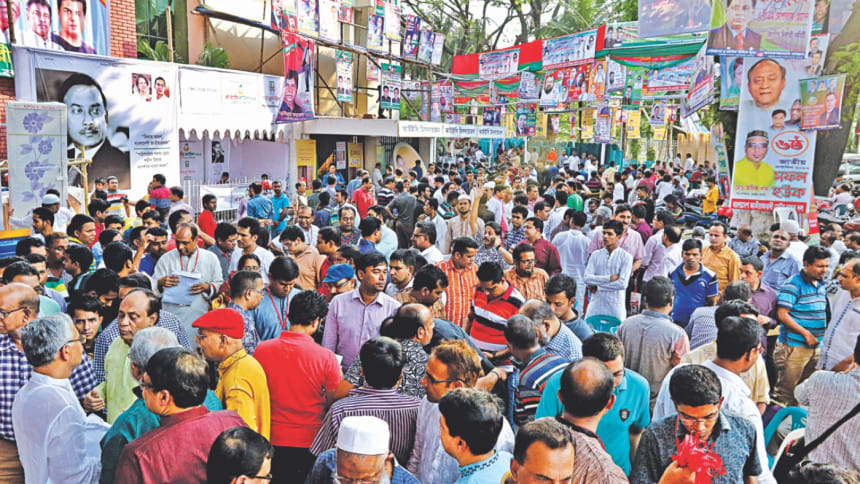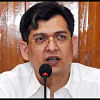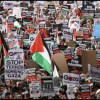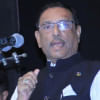Will BNP think for a change?
The BNP holds its national council today with the theme of freeing democracy from captivity, but democratic practice in its own home has remained absent since its birth in 1978.
The party charter says the national council will elect leaders to two very important bodies in the party, the standing committee and the national executive committee.
Lack of democratic practice inside the party is one of the major reasons for the current state of disarray, leaders from different tiers of the party told The Daily Star.
The party leaders are speaking of improving the organisation through the council. But the way they plan to conduct the council will violate its own charter as they might follow the old practice of handpicking leaders that goes against democratic practices in the party.
The central and grassroots leaders of the party have the power to elect the chairperson and the members of the standing committee and the office bearers of the national executive committees in the national council. But the party election schedule has not said anything about elections to these two important committees.
The party Election Commission--led by Jamiruddin Sircar—had earlier announced the election schedule to only two posts—the chairperson and the senior vice-chairman.
Khaleda Zia and her elder son Tarique Rahman were elected uncontested as the chairperson and senior vice-chairman of the party.

Without an election schedule, the councilors will not be able to elect the other leaders for the national standing and the national executive committee. They will be asked in the council session to authorise Khaleda, as they had to do in 2009, to pick other office bearers at her will to form the two crucial bodies.
“BNP will follow the tradition of the last councils this time too and empower Begum Khaleda Zia to choose the office bearers,” BNP spokesperson Asaduzzaman Ripon told The Daily Star.
Over the years, the party has not followed its own charter.
Many in the party believe BNP, one of the two major political parties, is paying heavily for absence of democracy in the party itself.
The BNP was supposed to hold its national council more than three years ago to elect the party chief and other office bearers according to its charter. It did not do so, allowing those who were either elected or picked by the chairperson in 2009 to continue holding their posts for three more years equal to a fresh term.
In the past, the party also had not held national council regularly obeying its charter. Since its formation in 1978, councils were held in 1982, 1989 and 1993.
The last council was held in December 2009 after 16 years.
Holding at least one meeting of its national executive committee every six months is mandatory in the charter. But the executive committee sat only twice in the last six years after the 2009 council.
The standing committee sits almost regularly. But despite being the highest decision making body, it cannot discuss major political issues and take decisions. Only the BNP chief can take decisions and run the party as she wishes, says standing committee members.
They said sometimes sensitive issues are not even included in the agenda. BNP insiders say this practice also allows her elder son Tarique Rahman to bear influence on her decisions.
For example, Khaleda had unilaterally announced a non-stop blockade on January 5, 2015 to protest the government's refusal to allow BNP to hold a rally on the first anniversary of January 5 one-sided parliamentary election.
Her sudden announcement apparently caught BNP policymakers by surprise. They claimed to be in the dark about it. Over 100 people were killed in the violent blockade, most burnt alive in firebombing of vehicles. Though there is no effort to enforce the blockade anymore, the blockade has not been officially called off yet.
The decision to boycott and to resist the January 5, 2014 parliamentary election was also not discussed in the party's standing or national executive committee.
The election boycott has left the party outside of the parliamentary politics for the first time since the restoration of democracy after the fall of the autocratic Ershad regime in December 1990. It has been either in treasury or opposition bench until the last election.
According to some BNP leaders, Khaleda Zia's sudden refusal at the last moment to meet visiting Indian President Pranab Mukharjee was also her own decision in 2013. They believe she cancelled the scheduled meeting with Pranab to make Jamaat-e-Islami happy-- a key partner of BNP-led electoral alliance.
Khaleda scrapped the scheduled meeting citing security concerns as a Jamaat enforced hartal was on to protest trial of its leader Delwar Hossain Sayedee on charges of war crimes committed during the Liberation War.
Khaleda Zia also refused to hold talks with then Prime Minister Sheikh Hasina to resolve the political impasse in 2013 over the mode of election time government. Hasina had made a phone call to Khaleda inviting her to talks.
Many BNP leaders believe the party is currently going through the worst crisis of its life. It is now a Herculean task to prop up the party that has been in power for around 14 years since its birth.
The BNP leaders however hope they will be able to overcome the present crisis through the national council.
Talking to The Daily Star on Thursday, BNP acting secretary general Mirza Fakhrul Islam Alamgir said the party hopes BNP will make a turnaround through the council by infusing new blood in the party.
BNP spokesperson Asaduzzaman Ripon said "We shall take oath in the council to free democracy so that people can get their voting rights."
BNP played an important role during the anti-Ershad movement in the 1980s under the leadership of Khaleda Zia.
Her leadership at that time drew votes for her party to put it in power in 1991. She again led BNP to power in 2001.
BNP has faced several existential crises in the past resulting in splits. Khaleda, who had no experience in politics, was made vice-chairman of the party in March 1983 in this critical period for the party and was elected chairperson in May 1984. She has been leading the BNP since then.
But her party does not have a democratic culture of holding meetings of different party forums and promote debate and discussions on policy-making.
Undemocratic means and ways were taken to form the BNP by abusing state power. It was formed to support the military ruler Gen Ziaur Rahman.
Gen Zia took over less than two years after the assassination of Bangabandhu Sheikh Mujibur Rahman and the overthrow of his government on August 15, 1975.
The party's charter gave the military ruler absolute power to run it at will.
According to Zia's plan, the Jatiya Ganatantrik Dal [National Democratic Party] was floated in February 1978, poaching leaders from different political parties.
Justice Abdus Sattar was chosen the NDP convener when he was the country's vice president, an office he got reportedly as a reward for siding with Zia in the latter's move to take over the office of CMLA and the presidency from justice Sayem.
Later, Zia formed the Jatiyatabadi Front [Nationalist Front] taking politicians from different parties for support and contested the presidential election as a candidate of the front in June 1978.
Only a couple of months after his electoral victory, Gen Zia unilaterally dissolved the front and the NDP in September and floated a new party, the Bangladesh Jatiyatabadi Dal -- BNP.

 For all latest news, follow The Daily Star's Google News channel.
For all latest news, follow The Daily Star's Google News channel. 








Comments